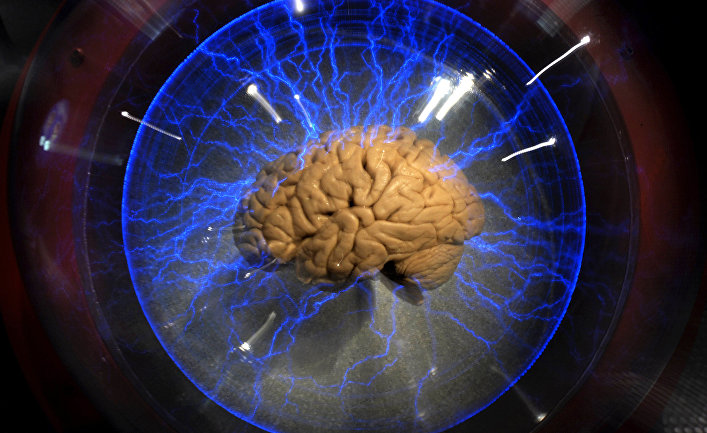A LITTLE ABOUT BRAIN WORK
Young cells of the old brain.
The human body constantly produces new cells and gets rid of old ones. However, it was previously believed that such a “cell turnover” does not occur in the ageing brain. In 2018, scientists have refuted this version, presenting convincing evidence that the “elderly” brain is actually capable of creating new cells. Having studied the brain tissue of 28 patients who died between the ages of 14 and 79, researchers found “old” and “tissues” of younger samples about the same number as in yet to fully mature cells. In particular, such cells were found in the hippocampus - the site responsible for learning, memory and the formation of emotions. Experts also noticed that fewer new blood vessels and connections between cells are present in the "elderly" brain, which explains age-related changes.
The brain "shrinks" during stress.
Bad news for people who are constantly under stress: because of this condition, the brain volume can decrease. Comparing the data of more than two thousand healthy middle-aged people, researchers from the USA found that in patients with a higher level of cortisol the brain volume is usually slightly less than that of people with normal amounts of this hormone. Moreover, tests have shown that memory is deteriorating in people under stress. In people with depression, anxiety disorder, and similar illnesses, the neurons of the prefrontal cortex, which are associated with the control of emotions, decrease (shrink). The number of neural processes, dendrites, as well as synapses, contacts between neurons, is also decreasing.

New part of the brain.
Editorial “News & Science” site (nauka.vesti.ru) suggests another important discovery in the field of neurobiology, namely the discovery of a new part of the human brain. The endorestiform core - as Australian researchers have named a newly discovered tiny area. It is located in the lower part of the cerebellum, which combines sensory and motor information, controls our posture, balance and fine motor skills. Experts suggest that the endorestiform core can participate in the control of fine motor skills. It is noteworthy that other mammals, including nonhuman primates, are deprived of this brain region. It is expected that further study of the new brain area - its functions and their disorders - will help create new treatment strategies and drugs for the treatment of various diseases, including Parkinson's disease and amyotrophic lateral sclerosis (motor neuron disease).
The human brain is infested with bacteria.
For a long time it was believed that a healthy brain does not contain micro-organisms, and therefore their presence signals a disease. But now, experts have found that the human brain has its own microbiome, and the bacteria in its composition are probably harmless. Studying the brain tissue of dead patients (healthy and suffering from schizophrenia), the researchers noticed strange structures in the form of sticks. It turned out that these are micro-organisms. RNA sequencing has shown that most of the bacteria detected are tremotypes, and all of them are also part of the human intestinal biome. Therefore, questions arise about the usefulness of keeping these intestinal biomes in order.
Overview publications news
-Science from 12/28/2018
 School of Cosmo
School of Cosmo 






